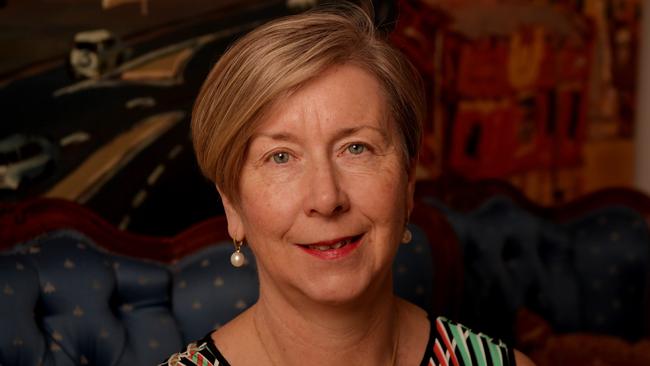Coronavirus: Plan B needed, says Australian vaccine hunter Jane Halton
The Australian driving the global search for a COVID-19 vaccine warns the government needs a ‘plan B’ to end the pandemic.

The Australian woman driving the global search for a COVID-19 vaccine has warned that there is no guarantee of success and the government must have a “plan B” to end the pandemic.
The sobering assessment by Jane Halton, a former federal mandarin who chairs the Bill Gates-backed Coalition for Epidemic Preparedness Innovations, will dampen hope that a vaccine could be available early next year.
Puncturing the optimism fired by first-stage human trials of a vaccine in the US and accelerated progress towards others here, in China and Israel, Ms Halton said it was “heroic” to assume an answer to the virus would emerge so soon.
Some scientists involved in the CEPI-sponsored program insist that a 12- to 18-month timeline is realistic, but Ms Halton told The Weekend Australian: “If you said we pulled out all the stops and a vaccine was approved and deemed efficacious by the middle of next year, that would be unbelievably quick … we would be ecstatically overjoyed, delighted.
“But I do think it is important not to create unrealistic expectations. No one has ever successfully developed a coronavirus vaccine, and we still don’t have a vaccine against HIV.
“I would never say never. But this is my point about an 18-month timeline: it is heroic, really tough.”
On Thursday, US biotech firm Novavax announced it was on track to launch a combined phase I-phase II human trial of its prototype recombinant vaccine in May, with results due by July.
This follows last month’s move by Boston-based Moderna Therapeutics to test its vectored RNA formula on people in Seattle, and the announcement of fast-tracked human vaccine studies in China.
In Brisbane, a University of Queensland team has put its promising molecular clamp technology to the test in laboratory mice, while scientists at the CSIRO’s state-of-the-art Australian Animal Health Laboratory in Geelong are running pre-clinical trials on candidate vaccines from Oxford University and a third US biotech company, Inovio.
Scott Morrison said this week a vaccine would be a “beautiful way out” of the crisis if and when it arrived, but Ms Halton, drawing on her experience as a former secretary of the federal Health Department, said no one could be sure whether any of the 35 R&D projects under way globally would succeed, despite the billions being poured into them. “I am hoping with every fibre of my being that that proves to be the case,” she said of a vaccine emerging.
“But the truth of the matter is we do have to have a plan B on how we run the joint, how we protect as many people as we can because with these sorts of things in science, nothing is certain.”
Ms Halton said the molecular clamp project was one of the most advanced of those under the CEPI umbrella and “the good thing in terms of the national pride part of this is that UQ is right up there.”
She said, however: “I personally would not be putting my money on one vaccine or the other, simply because we have seen too many fail.” Ms Halton spoke out as another University of Queensland research team headed by Luke Guddat revealed that an international hunt for COVID-19 treatments had worked through a list of 10,000 potential antivirals to identify six candidate drugs.
These inhibited the main enzyme that helped the virus replicate. “We’re particularly looking at several leads that have been subjected to clinical trials, including for the prevention and treatment of various disorders such as cardiovascular disease, arthritis, stroke, atherosclerosis and cancer,” Professor Guddat said.
“Compounds that are already along the pipeline to drug discovery are preferred, as they can be further tested as antivirals at an accelerated rate compared to new drug leads that would have to go through the process from scratch.”




To join the conversation, please log in. Don't have an account? Register
Join the conversation, you are commenting as Logout